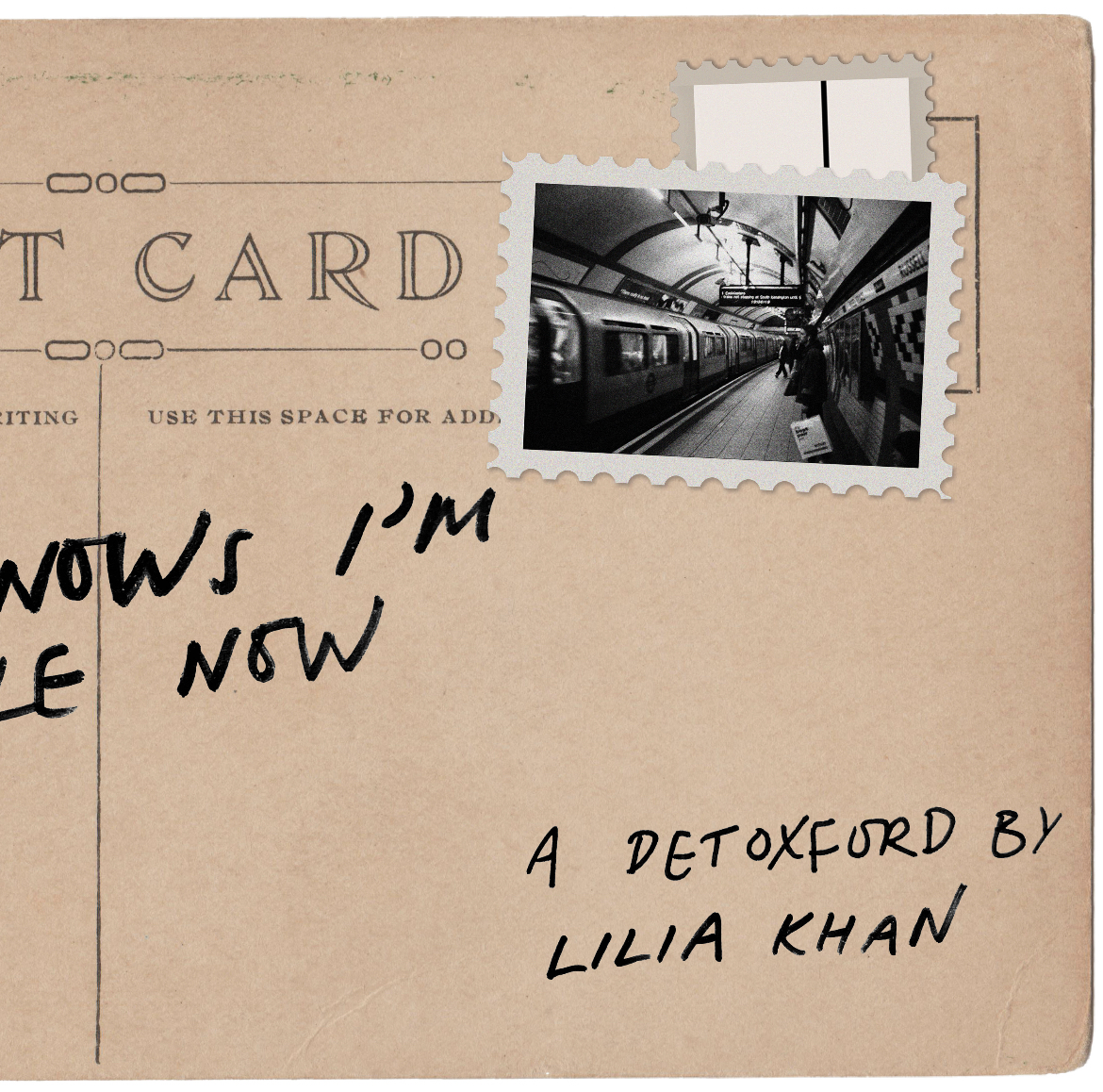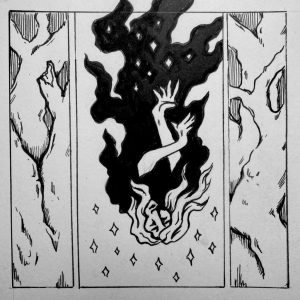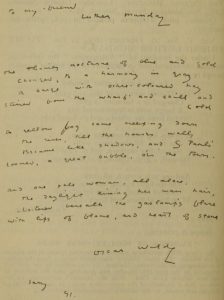Heaven knows I’m miserable now
by Lilia Khan | September 3, 2024

You have a nagging suspicion that you are a lazy, unmotivated woman who fancies herself a writer, but is too mauled by indecision to ever put pen to paper.
Writing this down now, I realise the judgement is so harsh I wouldn’t even want to speak it aloud; I wouldn’t like to hear my own voice pronounce words so severe in anyone’s direction. And yet, that is what I found myself repeating in my head all throughout the summer. In between several waitressing jobs, catch up coffees with school friends and Big Tesco runs with my mum, I gnawed at myself for not writing.
As I danced around the realisation that I would soon be entering my final year at Oxford, I naturally couldn’t help but think about where I fit into the world after university. An increasingly troubling pattern reared its head. Whenever I tried to paint a picture of a future where I had a stable career, one where I could think, create, explore and meet new people how I wanted to, my brain slammed me with an unnecessary wakeup call: Who do you think you are to deserve that? You have just spent the last few weeks in a staring contest with the cursor on your screen, and you might just be losing.
I can’t quite say what made writing so difficult in the summers for me; surely that long, hot stretch of time left me without distractions and term-time priorities, free to make something I was truly proud of. While I obviously love summer as much as the next person, that was not how I saw it this year. I envisioned this one as a desert: an uncomfortably vast gulf that warped and wrinkled time as the heat did the air. It felt too long to just spend it resting and seeing friends, enjoying myself before an inevitably difficult year, and it felt too short to make something of it, something of myself with it. So, when I dropped my duffle bags and cardboard boxes marked ‘Ox stuff’ into my room after moving out for the final time this year, the dread of indecision inevitably gnawed on my excitement.
As soon as I got back home, I needed a job. My requirements were pretty simple: I would work for minimum wage, anywhere in the city, so long as I had to do as little brainwork as humanely possible. I specifically envisioned a job that would let me untense my raging, clenched fist of a brain, hoping that the routine and the simple satisfaction of a job well done would soothe me and make me enough money to comfortably coast through the summer. My logic was that, as long as I kept myself physically busy running from customer to bar stand to kitchen, I could ignore the mounting anxiety until it got bored and miraculously transformed into some other, less bothersome emotion. My new mantra was: I do not have time to dread my future if I am waiting on tables. At the time, it seemed like an elegant solution. One that placated me only until I started actually looking for a job.
The job hunt itself was something that I would not ever willingly relive. From raking Indeed for jobs in any corner of London to watching the figures in my bank account quicksand into overdraft, I was desperate and chronically frustrated. I woke up to frustration when I saw my bank account notify me of another lofty TfL charge, and I went to sleep frustrated when I realised I had spent another day running from one unpaid trial shift to another without having touched a book or a pen in my spare time. And although I realised these were the minute, universal, and ultimately unremarkable grievances of pretty much any student, in the fretting mind of my ‘summer self’, they were damning indictments responsible for too many sleepless nights. It was ultimately the anxiety, not the situation, that ended up being the death by a thousand cuts.
I struck (fool’s) gold when I finally landed a strangely nebulous position by the title ‘team member on the ground floor of a 10-story office building’s cafe on a road that I always dreaded driving by as a child. That broad, gray carriageway, connecting my side of London to another, seemed like a thoroughly liminal, and so comically suitable, place to accept a job that I would later quit after one day of working. On my first and last day at that job, as I clocked in at 7am to a 10-hour kitchen shift, I was somehow surprised at not feeling deeply and existentially fulfilled. As I made about half a dozen piles of various stuffed bagels, I felt perhaps more anxious than I had at any point that summer. I was agitated by the cold, steely cube of a kitchen, at the feeling of my nails pushing uncomfortably at the ends of the food-safe latex gloves, at the cowboy boots I swore I wouldn’t wear for such a long shift, and more than anything about the fact that I had put myself in that position. It was entirely my fault for accepting a job I knew I couldn’t sustain, and I was about to make it all up to myself. No more than three hours into working, I went into the bathroom, cried it out, texted my boyfriend, and made my last words to my manager some vague excuse about food poisoning and a heavy weekend.
As I paced to my bus stop, trying to put as much distance between myself and that embarrassing performance as possible, I looked at myself as if for the first time this summer. Recognising the state I was really in, it became apparent just how much of a creature of need I become when anxious. The last few weeks were spent thinking solely in terms of needs. I desperately needed to sleep, I needed to get another coffee, and I needed to pace with coffee in hand; I needed to smoke, I needed to be out of the house at all times, I needed money. But most of all, what really grated me to no end, is that I needed to write. Not just because I thought it would be profitable for some future portfolio, but because I felt my brain spinning its own cobwebs when I didn’t write. Because I got myself into situations like this one when I was trying to run from thinking; writing. I recognise the melodrama of it now, but on that walk home I felt that every failure and struggle this summer simmered down to the fact that I simply wasn’t writing. Because what I have always known to be true about myself is that I am myself when I write. When I am spinning sentences together, what I know is that I am being honest, I am speaking in the language I know, and I feel seen, even if it is only by my own fabrications. So when I left that job, even though the panic of making money didn’t subside, I felt a strange satisfaction that bookended the manic job search episode of my summer vac.
After I convinced my old boss to give me some shifts at my old job, I spent my free time trying to avoid a crisis of faith again. I desperately needed to remember what it was like to enjoy my own company, so as a matter of urgency, I went old-school and started keeping a diary for the first time since I was twelve. I filled the hours I spent on the tube, the bus, in between shifts, attempting to write. It was sometimes a scratchy confessional about one thing or another, and it was often the most unreadable, unstructured poem you could ever set eyes on. But anything went. As incrementally as possible, I stopped starving myself of creativity. While my anxiety meant my resting heart rate still resembled that of an animal being hunted for absolutely no good reason, I took endless pleasure in the fact that I could say that I wrote. While I was still mauled by indecision, it was not so much so that I could not put pen to paper. I could, and I did on the daily.
This article has not been an elaborate way to encourage anyone to keep a diary. Don’t! Or do, but that is not my express point. Selfishly, the point of this article was simply just to write. But if you ask me more seriously, it was also to reflect on how terrible it is to starve yourself of the thing you love. While I have not miraculously found a cure for incessant writer’s block, I can say for certain this summer has taught me that ignoring the damage it does to my life does not help. I often find writing akin to threading an impossibly large thread through an impossibly small needle: exacting, intricate, and for God’s sake why is the thread even that thick? But I have found it is, at least for me, the thing that keeps the tapestry of my life from coming undone. ∎
Words by Lilia Khan. Image courtesy of Lilia Khan.




